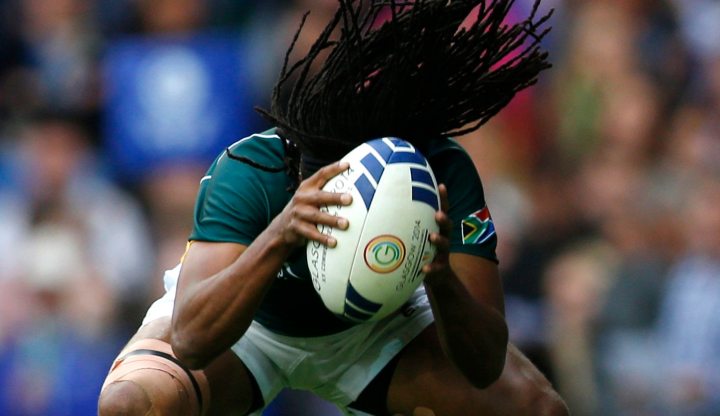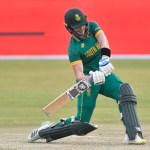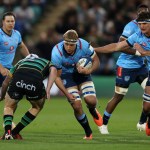Sport
Rugby: In an Olympic year, Sevens refereeing comes under microscope

Even in gladiatorial times, people blamed the referee. These days, with technology there to assist and get the right call, it is staggering that we seem to be talking about dodgy calls more than ever. And in a year when rugby is set to return to the Olympics, it’s more than just the outcome of a match at stake. By ANTOINETTE MULLER.
Ah, blaming the referee. A practice as old as sport itself. In 2011, researchers decoded an 1,800-year-old tombstone that had been discovered more than a century ago in Turkey. Michael Carter, a professor at Brock University in St Catharines, Canada believes the inscription describes a sporting loss that was due to a refereeing error.
The tombstone showed a gladiator seemingly with two swords and towering over his opponent. The opponent is looking pretty sorry for himself (who can blame him?). The text on the stone marks the grave of a gladiator identified only as Diodorus, and it reads: “After breaking my opponent Demetrius I did not kill him immediately. Fate and the cunning treachery of the summa rudis killed me.”
A summa rudis was a referee back in the battle-to-the-death combat days. Whatever this particular official did, Diodorus clearly wasn’t happy.
While we’ve long moved on from fighting each other to the death, we’ve certainly not moved on from blaming the ref. Players, fans and pundits all have a pop for various reasons. Sometimes it’s simply seeking a scapegoat; at other times, it’s because of a victim mentality or simply from denial. And sometimes the criticism is justified.
This weekend, South Africa’s rugby sevens team were, once again, on the bad end of a decision. In their semi-final clash against Australia in Las Vegas, a penalty try was awarded against the Blitzboks because Rosko Speckman took down Quade Cooper without “any arms in the tackle”. Replays of the incident resulted in plenty of debate, and while it was clear Speckman chest-bumped rather than barged, there was room for interpretation over whether or not his arms were involved.
Speckman deserves plenty of criticism for such a haphazard approach, especially with South Africa enjoying only a narrow lead of 12-7 at the time, but that does not mean the officials should escape scrutiny, especially if technology is there to assist.
The decision was not referred to the third-match official after the referee consulted his assistants. This is disconcerting in a game like sevens where things happen so quickly. Of course, everyone wants to keep things moving — that’s part of the appeal of the format after all — but it should not be the case when potential match-changing calls are made, and especially not when laws and rules are so open to interpretation.
These mistakes are of concern in a year when rugby is set to return to the Olympics. It’s even more worrying that it is not the first time in this season that such incidents have occurred. In fact, it’s not even the only time in this match where there was debate over the level of officiating.
In the same semi-final between South Africa and Australia, Speckman was later deservedly sent off for a high tackle, which resulted in yet another penalty try for the Aussies. But officials had earlier missed another high tackle. Just before South Africa scored their second try, and right after Australia gave away a penalty for yet another high tackle on Seabelo Senatla, Du Preez was grabbed high by an Aussie defender just a few feet away from the posts. It went unnoticed, but it’s these inconsistencies that need to be ironed out before rugby heads for the Olympics. Just imagine that dubious calls or inconsistencies pop up when a gold medal is up for grabs?
Earlier this season in the Wellington Sevens, a forward call that went against South Africa ruffled plenty of feathers. Then there was the issue of New Zealand fielding eight players in the Sydney Sevens, which resulted in no action against the All Blacks. World Rugby simply responded by saying “such incidents are rare” and while that might be true, the sport’s governing body ignored the greater issue of the standards off officiating currently marring the sport.
Of course, none of the dubious officiating excuses Speckman’s issues with discipline. He has picked up three yellow cards this season already and is one of just two players (the other being New Zealand’s Isaac Te Tamaki) to have picked up red. The fact that these issues don’t seem to have been addressed was part of what cost the Blitzboks over the weekend, and captain Kyle Brown admitted as much after they finished third with a 0-21 consolation win over hosts the United States.
“Anybody who hears that we lost because of two penalty tries will realise very quickly that it must have been a discipline thing that got us caught up in that game,” Brown said. “In a play-off game against Australia, who have been playing some great rugby throughout the weekend, it means you are not going to see yourself in the final and it is going to be very difficult to win almost any game if you are going to play like that. I think it is a couple of small things, it is not massive things. We addressed it, which will make us even more disappointed because it was a focus of the week but we will have a look at it again going into Vancouver.”
Despite all this, the Blitzboks have done well even without players like Werner Kok and Frankie Horne missing from their line-ups. Their defence has been impeccable, rarely missing a tackle. The fact that experienced XVs players have dipped into the squad without struggling too much also helps. The side has improved dramatically since their ugly win in the Cape Town leg of the tournament.
The teams now move on to Canada with Fiji five points clear at the top of the table. South Africa will be hoping that after drawing the short officiating straw so often, they’ll have a bit of luck go their way. World Rugby will be hoping they finish the season without too many incidents and by the time the Olympics come around, they have a group of officials who they can rely on enough to avoid pissing off an entire nation. DM
Photo: South Africa’s Seabelo Senatla scores a try against Samoa during their men’s rugby sevens medal semi-final at the 2014 Commonwealth Games in Glasgow, Scotland, July 27, 2014. REUTERS/Russell Cheyne.



















 Become an Insider
Become an Insider